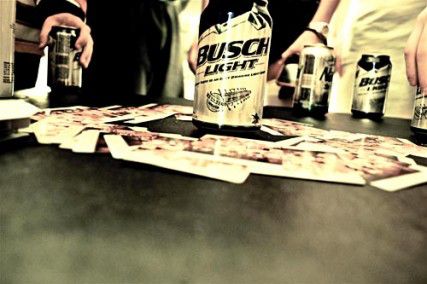
Hosts of underage drinking parties who do not supply alcohol to minors are not liable for injuries their guests may sustain, according to the Massachusetts Supreme Judicial Court’s ruling.
The owners of the property are also not liable in civil lawsuits, according to the decision.
The decision follows a 2007 case in which the family of Rachel Juliano, 16 years old at the time, sued the host of an underage drinking party when Juliano suffered brain damage after leaving the party.
She and her boyfriend Christopher Dunbar, who had been driving drunk, got in a car accident after leaving the party.
But Juliano and Dunbar, who was 19 at the time, brought their own alcohol to the party. The host, also 19, “neither consumed [her father’s alcoholic] beverages nor offered them to her guests,” the case records said.
Based on precedents set by similar cases, the court decided unanimously that hosts cannot be held liable for injuries since the hosts do not necessarily have control over people’s consumption of alcohol.
“[I]n the absence of a right to exercise effective control [over the supply of alcohol], the defendant [is] not subject to a duty,” the court’s official decision stated.
Robert Powers, the attorney for Jessica and Peter Simpson, the defendants in the 2007 case, said the decision was driven by fact.
“Massachusetts courts have consistently ruled that social host liability may only be imposed where the host either serves the alcohol or effectively controls the supply of alcohol,” he said in an email to The Daily Free Press, “this was not a case for a dramatic expansion of social host liability.”
Under the decision, the host of a party can still face punishment if he or she provides alcohol to minors or a place to consume alcohol, as doing so violates criminal law.
The attorney who represented the Juliano family in the civil case, Richard Campbell, said in defending Juliano he argued the host of the party had broken the law by providing underage drinkers with a so-called “safe” place to drink.
“The criminal law as of 2000 made it illegal for any person . . . to allow the use of his or her premise for illegal underage drinking parties,” he said in an email. “Our principal argument to the Supreme Judicial Court was that the duty of care that already existed on the criminal side of things should be imparted to residents of the Commonwealth of Massachusetts on the civil side.”
Campbell said this decision does not affect criminal law at all.
“Under the criminal laws, if [people] engaged in the same conduct that Jessica Simpson engaged in, [the district attorney] would prosecute,” he said.
Powers said the decision does not offer any sort of safe harbor for underage drinking.
“In no way should the Juliano case be viewed as absolving
As the case stands, it does not hold liable adults who knowingly allow minors to drink in their homes. However, the justices differ on how to reconcile this, some arguing that any decisions related to adult hosts should be decided on a case-specific basis.
Boston University student Lacin Koro, a freshman in the College of Arts and Sciences, said he agreed with the decision, but only if parents do not know about the party.
“[The parents] might not have been at the house, or may not have even known about it, so they should not be sued in any way or form [in this scenario],” he said, adding that if the host is older than 18, he or she should be liable.
Ally Hughes, a CAS senior, also said she agreed with the decision.
“It’s the choice of the person,” she said, “who brought alcohol to drink and to be stupid.”
This is an account occasionally used by the Daily Free Press editors to post archived posts from previous iterations of the site or otherwise for special circumstance publications. See authorship info on the byline at the top of the page.



